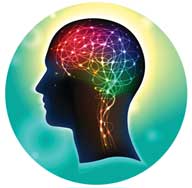Why Quitting Smoking Is Hard


- Nicotine is the main addictive drug in tobacco that makes quitting so hard. Cigarettes are designed to rapidly deliver nicotine to your brain.
- Inside your brain, nicotine triggers the release of chemicals that make you feel good. As nicotine stimulates parts of your brain over and over, your brain gets used to having nicotine around.
- Over time, nicotine changes how your brain works and makes it seem like you need nicotine just to feel okay.
- When you stop smoking, your brain gets irritable. As a result, you might get anxious or upset. You might have a hard time concentrating or sleeping, have strong urges to smoke, or just feel generally uncomfortable.
- These feelings are called withdrawal. This gets better a few weeks after quitting as your brain gets used to not having nicotine around.
- Some quit-smoking medicines contain nicotine. This gives you a safe way to get used to not having so much nicotine from cigarettes in your brain.
Did you know that nicotine actually changes your brain? Learn what happens to you when you smoke a cigarette, and how using nicotine replacement therapy (NRT) can help you quit smoking for good.

- Your days are filled with routines that you associate with smoking. When you quit it may be hard for you to do these routines without a cigarette in your hand.
- Many people connect smoking with things they do during the day, like taking breaks, drinking a cup of coffee, finishing a meal, talking with friends, or using the phone. These are called triggers.
- Feelings can also trigger an urge to smoke. People can get urges when they start to feel stressed or down, or even when feeling happy or relaxed. Then when you quit, one of these feelings can trigger the urge to smoke.
- When you quit, you will figure out how to get through your routines without cigarettes. And you will figure out how to deal with feeling stressed or down without smoking.
- The good news is that millions of people have quit smoking for good, and most report feeling better after they’ve been quit for a while.

To quit successfully, you have to deal with both of these challenges: your brain not having nicotine, and not having cigarettes during your daily routines. It can be hard to deal with both at once:
- Quit-smoking medicines help with the first challenge by reducing cravings and withdrawal symptoms like being irritable and having trouble concentrating and sleeping. Learn more about how quit-smoking medicines work.
- That allows you to focus on the second challenge: figuring out how to get through the day doing all the activities you connected to smoking. The good news is there are lots of simple things you can do that make it easier.
Quitline coaches can help you come up with ways to make quitting easier.